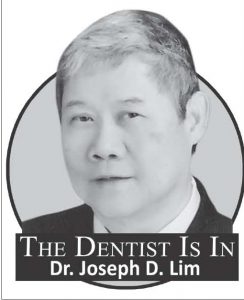
The Emerald Isle is losing its sheen. Or so it seems.
Oh, it remains as verdant as ever, as beautiful a gem as ever in the Atlantic Sea.
“Ireland ‘losing dentists’ over lack of specialist training.” The headline comes from the Irish Times newspaper. “Dentists training to become specialists forced abroad, many never to return,” it said, quoting the Royal College of Surgeons in Ireland (RCSI).
“Many do not return, which means Ireland loses out on this talent, having provided State-funded undergraduate dental training,” said Dr. John Marley, RCSI Dean of Faculty.
“Furthermore, unlike doctors, pharmacists, accountants and solicitors, Irish dentists are not required by law to undertake continuous professional development training,” he told the newspaper. “This means there is no formal mechanism for dentists to demonstrate to the public that they are maintaining their skills and knowledge and keeping up to date.”
He said new dentists are “thrown into the deep end” and go directly into dental practice. In contrast, in the neighboring United Kingdom, a one-year internship is required for all new dentists. So it is mandatory too for Ireland’s medical profession.
The RCSI is urging the introduction of an intern year for all dentists, more specialist training and mandatory continuing professional development.
The United Kingdom now recognizes 13 dental specialties. The Irish Dental Council recognizes only two: the orthodontics and oral surgery specialist fields.
“Without the appropriate educational and training support, the dental profession in Ireland is unable to assure patients that they are receiving the safe and contemporary standard of care they expect,” Dr. Marley told the Irish Times.
From just 500 Filipinos in Ireland in 1999, there are now over 12,000 according to the latest census conducted in 2011. The first group of nurses arrived in April of 2001.
By 2002 Ireland was the third largest importer of Filipino nurses, after Saudi Arabia and the United Kingdom.
Diane Sabenacio Nititham, PhD, a second-generation Filipino-Thai American, observes that “despite creating a sense of belonging, Filipino immigrants in Ireland still experience moments of rootlessness.”
Between 2006 and 2009, she conducted research with Filipino immigrants in Ireland.
In her book, “Making Home in Diasporic Communities” (2016), she observed the ways in which immigrants created a sense of home by seeking each other to speak Filipino languages, participating in rituals and religion, and sharing and eating Filipino food.
“These practices helped Filipino diaspora members to create ‘home’.”
Now then, just as Irish dentists have gone to greener pastures abroad, Filipino nurses have found a new home in the Emerald Isle./WDJ

